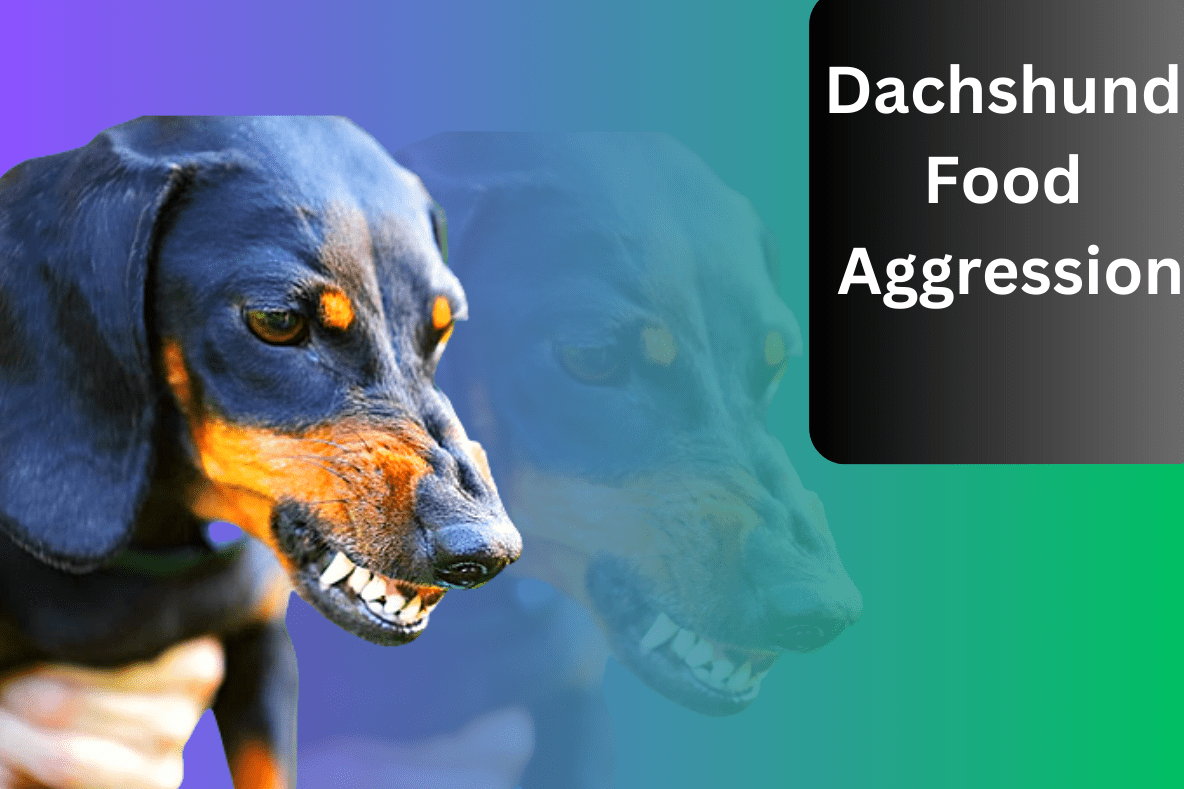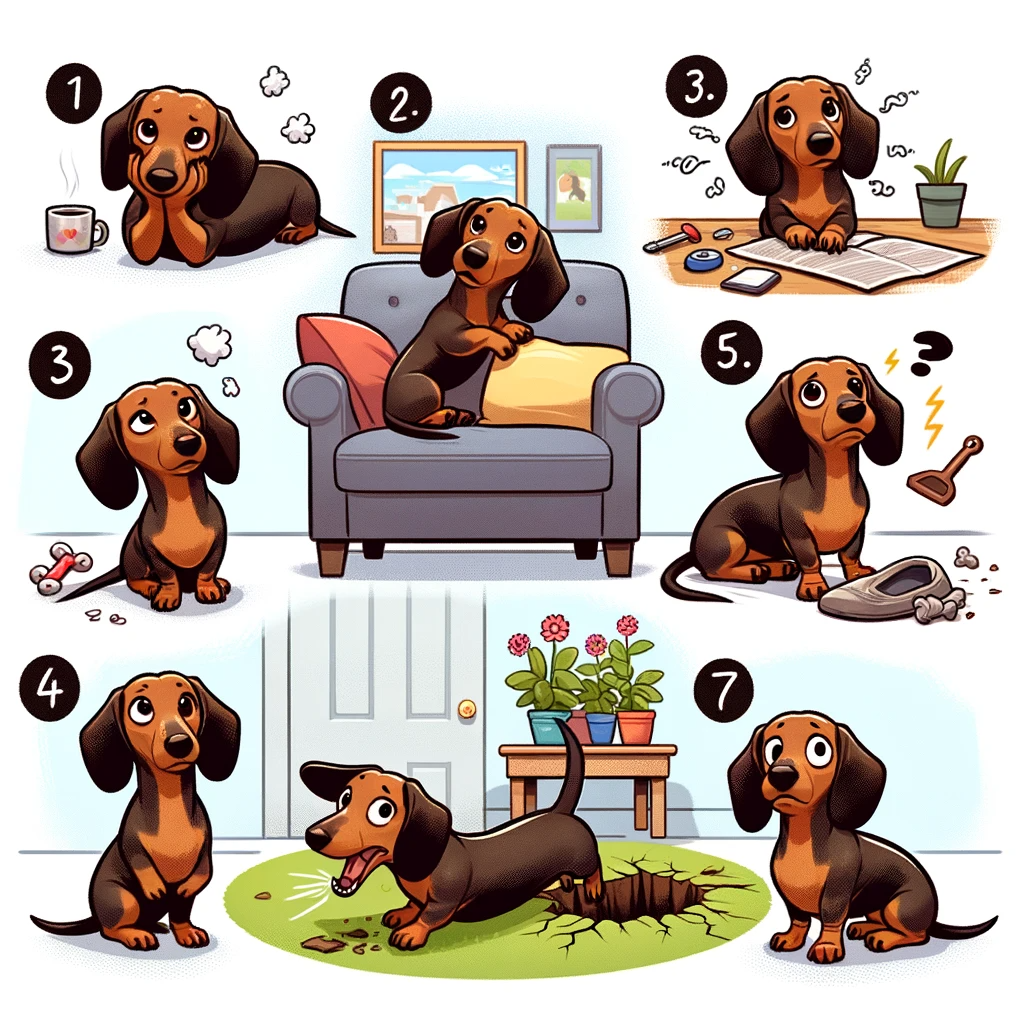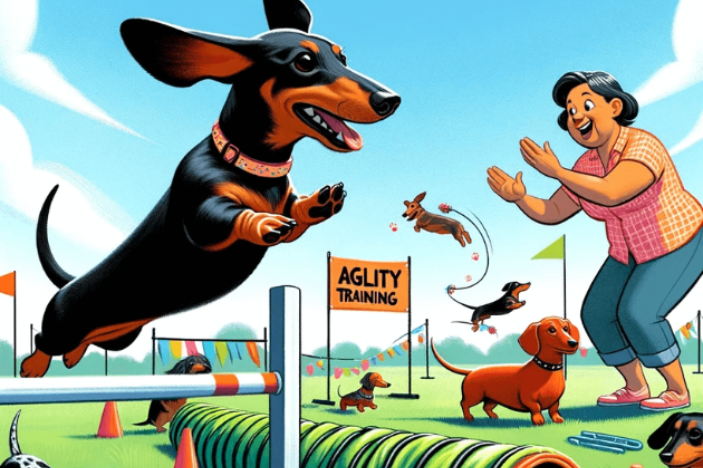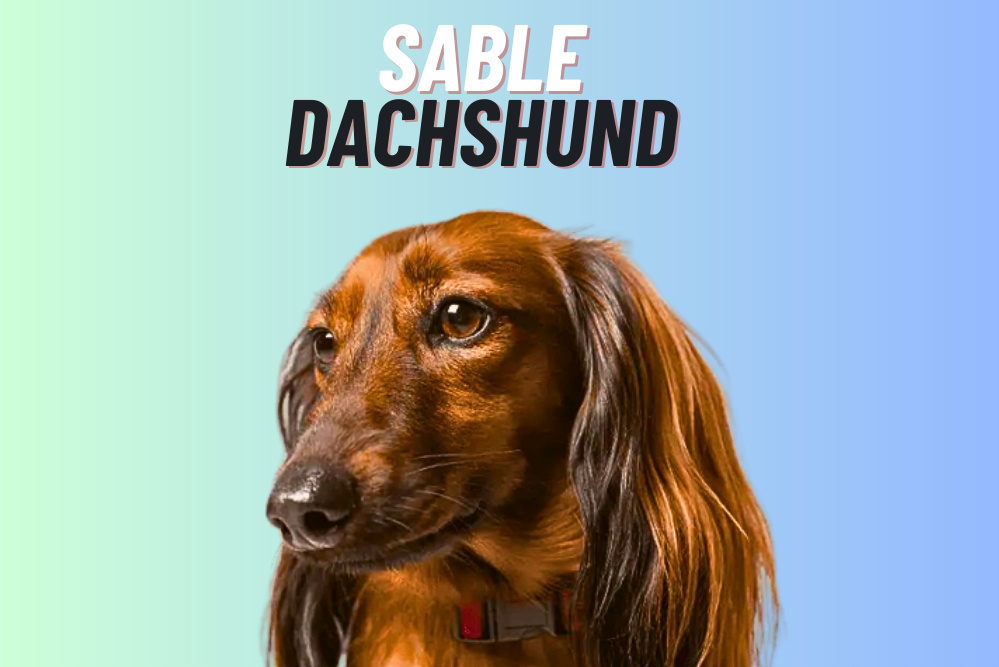Food Aggression
food aggression in dachshunds is a behavioral problem that involves food aggression toward people or other animals associated with the food supply.
The most common scenario where this occurs is when one dachshund is trying to monopolize all of the food during feeding time, which can lead to problems such as excessive barking and growling.
dogs that are prone to this type of behavior may be reluctant to let anyone else eat or drink from their food dish, leading them to become aggressive if they are not given their share immediately.
This can cause significant disruptions in family life and/or interfere with training sessions involving food rewards.
If you notice your dachshund exhibiting any signs of food aggression towards people or his food bowl, it’s important to seek help from a professional trainer who specializes in dealing with dog obedience issues.
dachshund food aggression can lead to serious problems for both dogs and their owners if left untreated.
What Should Do to Finish Food Aggression in Dachshunds?
Food aggression in dachshunds is a common issue that can be difficult to manage. This type of behavior typically occurs when one dog is trying to dominate or control another for food. Food aggression can range from threats and growls to outright biting.
If you’re the victim of food aggression, the first step is always to stop feeding your dog what he’s trying to aggress against. Secondly, establish rules around who gets access to which foods and make sure these rules are consistently enforced.
You may also need to put your dog in a separate room while eating so that he doesn’t feel slighted or anxious about the situation. And finally, provide plenty of positive reinforcement – including treats – whenever your partner behaves calmly around food.
Most power full Techniques To Help With Food Aggression
The most powerful techniques to help with food aggression may include being consistent, having to work for food, and packing leaders first. Being consistent means providing the same feeder with enough time to eat.
if the animal is always running away or eating quickly, this will only lead to frustrated news and anger. Food must be available in a timely manner having to work for food can be accomplished by incorporating puzzle feeders. where certain foods are hidden in your feeding routine.
So that it doesn’t get ignored or fought over. this creates an excitement factor that helps keep animals occupied while they’re trying to consume their meal.
One of the most important things you can do to overcome dachshund food aggression is to be consistency.
This means that you need to continue implementing food and diet strategies. Don’t let anger override your better judgment when it comes to eating.
Instead, focus on rational thought and try not to engage in any physical altercation with your partner over food issues. This will only lead to conflict and may ultimately reinforce their behavior instead of changing it for the better.
Do You Know What Aggression Looks Like Dachshund?
Yes, I can provide information about aggression in Dachshunds. Dachshunds, like any other dog breed, can display aggression in certain situations.
Aggression is a complex behavior that can arise from various factors, including genetics, socialization, training, and individual temperament.
Here are some signs that may indicate aggression in a Dachshund:
- Growling and Snarling: Dachshunds may growl and snarl when they feel threatened or agitated. It’s a vocal warning sign that they may become aggressive if the situation escalates.
- Biting or Nipping: Aggressive Dachshunds may exhibit biting or nipping behavior towards people or other animals. This can be a defensive response or an attempt to assert dominance.
- Stiff Body Posture: When a Dachshund becomes aggressive, it may display a stiff body posture. This includes raised hackles, a tense body, and a fixed stare.
- Lunging or Barking: Aggressive Dachshunds may lunge toward people or other animals, often accompanied by intense barking. This behavior is an attempt to intimidate or defend their territory.
- Resource Guarding: Some Dachshunds may exhibit aggression when they perceive a threat to their resources, such as food, toys, or their favorite resting spot. They may growl, snap, or bite if someone tries to approach these resources.
It’s important to note that not all Dachshunds are aggressive, and aggressive behavior can be influenced by various factors.
Proper socialization, training, and responsible ownership play a crucial role in preventing and addressing aggression in Dachshunds.
If you have concerns about aggression in your Dachshund, it’s recommended to consult with a professional dog trainer or behaviorist who can assess the situation and provide appropriate guidance.
What You Should Know about Aggression in Dogs?
Understanding aggression in dogs is essential for responsible pet ownership. Here are some key points to know about aggression in dogs:
- Aggression is a Behavior, Not a Breed Trait: Aggression is a behavior that can occur in any dog, regardless of breed. While certain breeds may have specific tendencies, individual dogs within a breed can vary in their temperament and behavior.
- Types of Aggression: There are different types of aggression that dogs can display, including fear-based aggression, territorial aggression, protective aggression, possessive aggression, social aggression, and predatory aggression. Each type may have different triggers and require specific approaches for management and training.
- Early Socialization is Crucial: Proper socialization during a dog’s early development stages is vital in preventing aggression. Introducing dogs to a variety of people, animals, environments, and experiences in a positive and controlled manner helps them become well-adjusted and less likely to display aggressive behavior later on.
- Aggression Can Be a Warning Sign: Aggression in dogs is often a warning sign that they are feeling threatened, scared, or uncomfortable in a particular situation. It’s crucial to recognize these warning signs and take appropriate action to prevent escalation.
- Seek Professional Help: If you notice aggression in your dog, it’s important to consult with a professional, such as a veterinarian, dog trainer, or behaviorist, who has expertise in canine behavior. They can assess the situation, identify the underlying causes, and provide guidance on management, training, and behavior modification techniques.
- Training and Positive Reinforcement: Positive reinforcement training methods, such as rewarding desired behaviors, can be effective in addressing aggression. Punishment-based techniques or harsh training methods can worsen aggression and should be avoided.
- Safety Measures: When dealing with an aggressive dog, it’s essential to prioritize safety. This may involve using a leash, muzzle, or other management tools as recommended by professionals. It’s also important to create a safe environment and avoid situations that may trigger aggression.
Remember, aggression in dogs should be taken seriously, and it’s always best to seek professional guidance to address the issue effectively and ensure the safety and well-being of everyone involved.
In some cases, aggressive behavior may be indicative of a mental health issue such as separation anxiety or obsessive-compulsive disorder (OCD). On the off chance that your dachshund dog shows any signs of aggression towards individuals or different creatures, it is important to get support from a pet specialist ASAP
What to Avoid When Dealing With Food-Aggressive Dachshunds?
When dealing with food-aggressive dachshunds, it is important to keep in mind their natural prey drive. This means that they may try to steal your food or chew on items that you’re not supposed to eat. This can be dangerous and costly if something goes wrong.
To avoid this, make sure that all of the dog’s food is contained in one place and never leave any unattended. If you do need to let the dog out for a quick walk, make sure he has his kibble with him at all times so there are no surprises along the way.
Additionally, discourage them from chewing on anything except appropriate toys preferably ones made from durable materials like rubber or plastic.
Can the dachshund dogs’ food aggression be controlled?
Yes, The best way to help your dog overcome food aggression might be different for each dog. However, some tips that may work well include providing plenty of high-quality kibble and water along with occasional treats.
As the severity and nature of your dog’s aggression will determine how successful treatment will be. However, there are a few things that you can do to help improve their behavior.
one approach is training your dog using positive reinforcement techniques such as treats or praise. This Training should start from an early age and continue throughout their lifetime so that bad habits don’t form later on down the line.
developing a positive relationship with your pet. practicing adequate socialization from an early age, teaching your dog basic obedience to eating outside.
such as putting bone in their food if they’re prone to biting. using desensitizing training methods such as spraying them with a squirt bottle filled with vinegar or peanut butter before meals, etc.
There is no easy solution when it comes to solving problem behaviors like food aggression; however, by following these simple tips you can put yourself on the path towards success.
What is food aggression in Dachshunds?
Food aggression in Dachshunds is a behavior where the dog displays aggressive or possessive behavior around food, often guarding or growling when approached while eating.
Why do Dachshunds exhibit food aggression?
Food aggression in Dachshunds can occur due to various factors, including resource-guarding instincts, fear, past experiences, or a lack of proper training and socialization.
How can food aggression in Dachshunds be managed?
Food aggression in Dachshunds can be managed through techniques such as feeding in separate areas, using food puzzles or slow-feeders, teaching “leave it” and “drop it” commands, and gradually desensitizing the dog to people or other animals near their food.
Is punishment an effective approach for addressing food aggression in Dachshunds?
No, punishment is not recommended for addressing food aggression. Punishment can increase fear and anxiety, leading to more aggressive behavior. Positive reinforcement-based training methods and seeking professional help are more effective approaches.
Can food aggression in Dachshunds be eliminated?
While it may be challenging to eliminate food aggression, with proper training, management, and behavior modification techniques, it can be significantly improved or controlled. Consistency and patience are keys to addressing food aggression in Dachshunds
Conclusion
Now that you know what dachshund food aggression is, which is common among the breed, you can take proper steps to stop it from happening.
This article also explained the symptoms of such behavior, so that you can keep your pup safe and happy.
In addition to keeping a watchful eye on what they are eating and feeding them nutritious food only, do not forget to play with them often too.
There are a few things that can add to the event of dachshund food aggression. One of them is the way your pet is raised.
If you notice some signs of aggression, it is better to consult a vet before trying any kind of treatment or changes in the diet.
In addition, try ignoring the aggressive behaviors from time to time and playing with your pet on different days instead. This will help prevent future issues too!




